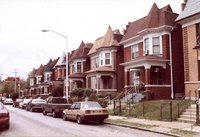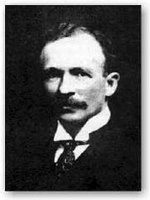How Many Ways to Go Back Home

 When I left Saint Louis many years ago I left believing I had no reason to ever return, except perhaps for the occasional visit such as the one I made just this past Labor Day. With both my parents having been long deceased and childhood memories that are ordinary, embarrassing, occasionally haunting and questionable, I’ve never believed I left anything that would make me want to go back to live there. In fact, now that I have firmly established myself in the Atlanta Metro area, married and all, I was even beginning to fancy myself a Southern writer, particularly since I have one manuscript set very distinctly in Atlanta. But, recently it seems as though my heart is beginning to soften when I think of the place that I no longer call home, but that I know is inherently a part of me; it is in my soul and has made me the person that I am. It took me a long time to accept this. People from the south have such a distinct personality and culture, as do those from the west and up north. Midwesterners, in my opinion, are a little generic, bland; no well-defined mannerisms, or accents or traditions. I wanted to be connected somehow to the rich civil rights history of the south, to be a Georgia peach. I even began to bask in the glow of people commenting on my supposed country accent.
When I left Saint Louis many years ago I left believing I had no reason to ever return, except perhaps for the occasional visit such as the one I made just this past Labor Day. With both my parents having been long deceased and childhood memories that are ordinary, embarrassing, occasionally haunting and questionable, I’ve never believed I left anything that would make me want to go back to live there. In fact, now that I have firmly established myself in the Atlanta Metro area, married and all, I was even beginning to fancy myself a Southern writer, particularly since I have one manuscript set very distinctly in Atlanta. But, recently it seems as though my heart is beginning to soften when I think of the place that I no longer call home, but that I know is inherently a part of me; it is in my soul and has made me the person that I am. It took me a long time to accept this. People from the south have such a distinct personality and culture, as do those from the west and up north. Midwesterners, in my opinion, are a little generic, bland; no well-defined mannerisms, or accents or traditions. I wanted to be connected somehow to the rich civil rights history of the south, to be a Georgia peach. I even began to bask in the glow of people commenting on my supposed country accent.Last spring break, I took a day-trip to Monticello, Georgia for some back roads photo opps and maybe some stories about ‘how bad it used to be’. I met three people there who all seemed like they belonged somewhere else. One lady was the first black president of the Monticello Chamber of Commerce, one worked for the chamber of commerce but had been an extra in several movies, and one was a man who ran a family-owned restaurant. All of them had lived in various places: Atlanta, California, Houston… When I asked how they ended up back in such a god-forsaken place, every one of them came back because of an ill or elderly parent. Again my parents are deceased, but from that moment on I decided to stop saying and believing that I would never go back. My Aunt, who lived for many, many years (over 40) in Detroit, went back home to Saint Louis at the age of seventy, after the death of her husband. This is a woman who has traveled all over the place, and if she was drawn to return, who am I?
The one thing, without a doubt, that has kept me connected to the place I was born, (besides the fact that I still have two sisters there), is its architecture. From the two-storied, red brick flats of Hyde Park, the granite and marble of its municipal buildings, or the distinct style of the public schools designed and built by William B. Ittner and Rockwell M. Milligan between 1897 and 1925, I feel inescapably linked to this city through its history and my own.
And now through my study of American History and Literature, I am discovering new ways in which I am further rapt by this city named for King Louis IX of France (1215-1270), and purchased from the French in 1803, by President Thomas Jefferson as part of the Louisiana Purchase. Those names that I was introduced to by street signs and suburb markers come to life in stories about colonial Saint Louis: Choteau, Laclede, Bellerive, Lewis and Clark. Now, the stories of Africans who were part of that colonial history haunt me; Dred Scott, Jeannette Forchet, William Wells Brown. And, then there are those that came later like, Madame C.J. Walker, Cool Papa Bell, and Redd Foxx. And, of course there is a rich literary history established by T. S. Elliot, William Wells Brown, Kate Chopin, Tennessee Williams, and Sara Teasdale.
Now, characters from Saint Louis in the 1790s, 1930s, 1950s, ’65 are beginning to possess me with stories of Gaslight Square, Laclede Village, Mill Creek and the dairy farms of Harney Heights in the 1800s. My Uncle, who has transcended this life, and in fact has rooted himself firmly as one of my muses, I believe, is heading this influx of spirit and energy. In an email just before his death, when I was ranting about how abeyant, fragmented and ordinary St. Louis and St. Louisans were, he gently reminded me that I “was of Saint Louis stock, born and bred. So, don't knock it”.
"The City of St. Louis has affected me more deeply than any other
environment has ever done, I consider myself fortunate to have been born here, rather than in Boston, or New York, or London."— T.S. Elliot on St. Louis
Labels: contemplation, st. louis












